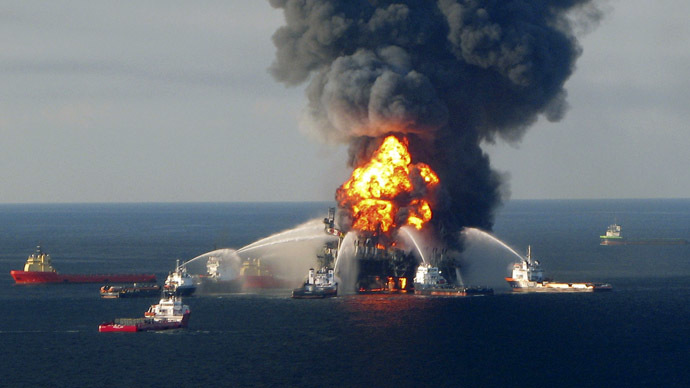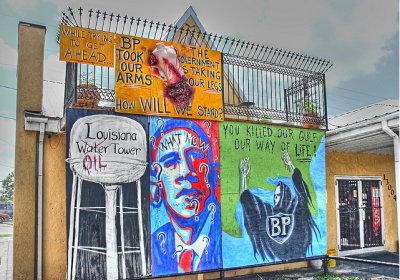Workers at Alcoa’s aluminium refineries and bauxite mines in Western Australia have voted down a new agreement offered to them after a 52-day strike.
BP
Chevron has become the second big oil company to abandon plans to drill for oil in the Great Australian Bight off the South Australian coast, a year after BP cancelled its plans to drill.
Oil companies say the Bight has similar potential to the Gulf of Mexico, site of the Deepwater Horizon oil spill of 2010, which was the largest marine oil spill in history and killed 11 people.
BP’s recent decision to pull out of a plan to drill for oil in the Great Australian Bight has been dubbed “strategic” by the company’s exploration managing director, Claire Fitzpatrick.
BP finally announced in late December it had withdrawn its two environmental plans for exploration drilling two months after announcing it would ditch the controversial project.
Australia’s offshore oil and gas regulator, NOPSEMA, had already sent back BP’s application to drill in the Bight three times and was due to make a decision on its latest two submitted plans by the end of the year.
Chevron, Santos, Murphy and Karoon Gas still have exploration licences but will face the same massive costs and increasing community opposition that BP experienced.
BP announced on October 11 that it has abandoned plans for a $1.4 billion program to explore for oil in the Great Australian Bight, off South Australia.
The British petroleum giant said the decision, which delighted environmental groups, was made because the project was not economically viable. It said it would instead focus on projects it could exploit in the short-to-medium term.
 Protesters hold a banner opposing BP oil drilling in the Great Australian Bight, in St Kilda beach on May 16. Photo: Chris Peterson
About 100 people rallied at Glenelg in Adelaide to protest against plans by oil company British Petroleum to explore for oil in the Great Australian Bight.
Protesters hold a banner opposing BP oil drilling in the Great Australian Bight, in St Kilda beach on May 16. Photo: Chris Peterson
About 100 people rallied at Glenelg in Adelaide to protest against plans by oil company British Petroleum to explore for oil in the Great Australian Bight.
 The fifth anniversary of BP's Macondo well explosion was marked on April 20. The explosion killed 11 rig workers and sent millions of barrels of oil gushing into the Gulf of Mexico, making it the worst offshore oil spill in US history.
Oil gushed from the site for 87 days, killing wildlife and prompting fishing bans. It also led to safety regulation standards intended to make the offshore oil and gas industry safer.
The fifth anniversary of BP's Macondo well explosion was marked on April 20. The explosion killed 11 rig workers and sent millions of barrels of oil gushing into the Gulf of Mexico, making it the worst offshore oil spill in US history.
Oil gushed from the site for 87 days, killing wildlife and prompting fishing bans. It also led to safety regulation standards intended to make the offshore oil and gas industry safer.
- Page 1
- Next page









